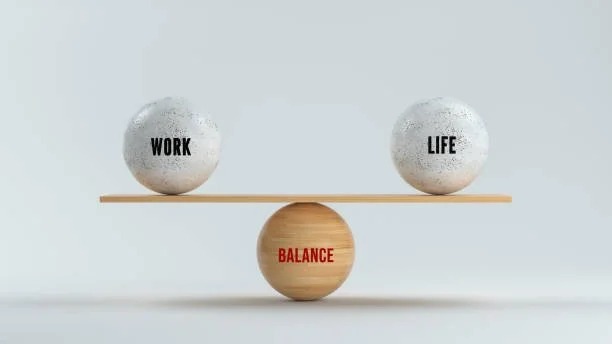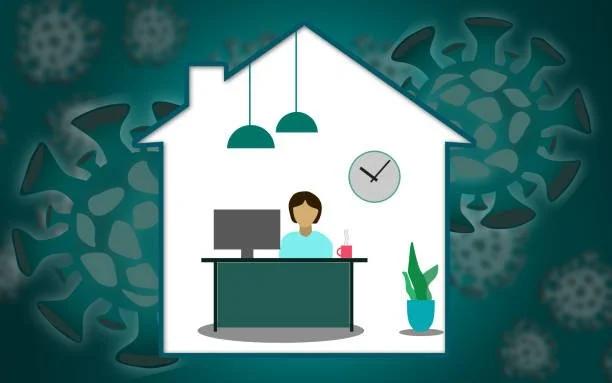How Home Life Affects Work?
It’s 9:30 a.m. You’ve just logged into work, coffee in hand, ready to take on the day. Ten minutes later, your phone lights up: a call from home about an unpaid bill. Soon after, a text from your child’s school about an urgent meeting pops up. By the time you return to your desk, your focus has fractured, your stress levels are up, and the work you meant to start still sits untouched.
This is the lived experience of countless professionals today. The boundary between work and home life has grown paper-thin, and what happens at home rarely stays at home. Whether it’s caregiving duties, financial strain, health struggles, or relationship issues, personal challenges seep into the workplace, eroding productivity, performance, and even mental health.
A 2025 survey in India found about 52% of workers reported burnout from poor work-home balance. Traditional advice has always preached “work-life balance,” as if two halves of life can sit neatly on a scale, but balance implies separation. What modern professionals face instead is overlap. That’s where the concept of work-life integration comes in. Instead of striving for rigid boundaries, integration allows us to create adaptive systems and compassionate approaches so both sides of life can coexist without one consistently overpowering the other.
Table of Contents
The Growing Demand for Balance
The Subtle but Serious Impact of Home Life on Work
The HR and Team Perspective
Daily Systems That Protect Work Amid Home Stress
The Employer’s Role
The Growing Demand for Balance
Across India and the world, people are demanding more balance and flexibility in work. Companies see employees asking for flexible hours, remote work, or lighter schedules. In India’s IT sector 72% of IT professionals routinely exceed the 48-hour workweek, and 83% of them feel burned out. People working over 55 hours/week have a 35% higher risk of stroke and a 17% higher risk of heart disease.
Burnout hurts both employees and companies. Overworked, stressed employees often have low engagement and bad performance. As a result, today’s workforce is demanding greater flexibility. Companies that provide strong work-life balance benefit from healthier, more productive staff and lower turnover.
Pros of better balance:
Reduced burnout: More rest and family time lowers stress.
Higher productivity: Focus improves when energy is not drained by exhaustion.
Employee loyalty: Workers stay longer in jobs that support their personal lives.
Better health: Proper balance lowers risks of anxiety, hypertension, and depression.
Cons of imbalance:
Exhaustion and errors: Overwork leads to mistakes and poor decision-making.
Blurred boundaries: Remote work can spill into personal time if left unchecked.
Workplace resentment: Colleagues may feel burdened if one employee’s personal issues affect team performance.
The message is clear, balance is no longer a “perk” but a necessity. Without it, employees and companies both pay the price.
The Subtle but Serious Impact of Home Life on Work
The connection between home and work is not just emotional, it is neurological. Stress from home raises cortisol levels, which directly affects memory, focus, and decision-making. That’s why even minor family disputes or money worries can leave someone distracted at work.
Mental distraction: Employees may physically be at work but mentally preoccupied with home issues such as bills, health concerns, or school obligations.
Burnout from double duty: Many professionals play dual roles, a dedicated employee by day and a caregiver or homemaker after hours. This “second shift” leaves them exhausted.
Role conflict: Choosing between a child’s need and a client meeting creates guilt either way, which often builds into anxiety.
For example, at your desk, you open your laptop, but instead of diving into the day’s tasks, your mind replays a single worry: the unpaid rent. Yesterday it was electricity bills, tomorrow it will be loan payments. Even as you try to focus on emails, the numbers keep running in your head. You’re present at work physically, but mentally you’re trapped in a cycle of calculations.
The first step toward managing this is awareness. Acknowledge the spillover by saying to yourself, “I am distracted by home stress.” Then, create a transition ritual before work, like a short walk, a breathing exercise, or simply writing down priorities; even five minutes can reset focus.
The HR and Team Perspective
While stress feels personal, its effects are visible at work. Managers and colleagues notice when performance slips or deadlines are missed. Often this plays out as frustration on the team: for instance, when one person repeatedly cannot meet commitments, co-workers end up covering their tasks, leading to resentment and stress. The mistake many employees make is staying silent. Fearing judgment, they avoid discussing personal challenges, but without context, managers may assume the employee is careless or disengaged. A better approach is transparent communication, not oversharing, but providing a clear heads-up.
For example, a short, professional note could say:
“Hi [Manager], I’m dealing with a personal matter that may affect my availability later this week. I’ve prioritised [critical task] and arranged coverage for [other tasks]. I’ll keep you updated. Thank you for understanding.”
This shows responsibility, protects credibility, and allows managers to support rather than penalise. Many HR professionals note that proactive communication helps avoid misjudgment and builds trust.
Daily Systems That Protect Work Amid Home Stress
Work-life integration cannot be achieved with one big change. Instead, it requires small, daily systems that reduce the chance of home stress spilling into work:
Flexible time-blocking: Schedule core hours for focus, but leave short buffer slots for personal tasks like quick calls or appointments. This prevents disruptions from derailing the whole day.
Delegation and automation: Automate bill payments, use grocery delivery, or share household chores with family. Each small system frees up mental energy for work.
Leverage workplace flexibility: Use options like flex-hours, remote days, or employee assistance programs proactively rather than waiting until burnout sets in. Planning ahead makes a huge difference.
Set clear boundaries: Decide on specific work hours and stick to them. For example, agree that after 8 PM or on weekends, you won’t check work email unless urgent. If you work from home, create a dedicated workspace and “leave it” at quitting time. This helps the family know when you’re off duty and helps you mentally switch off work.
Manage your time and tasks: Use a simple schedule or to-do list for both home chores and work duties. Prioritise the most important tasks each day. When you leave work, finish or pause work tasks so they don’t spill into family time. At home, list errands by urgency. Even splitting large tasks into smaller parts (for instance, doing ten minutes of cleaning each evening instead of a whole day on Sunday) can free up time. Planning ahead means you’re not rushed and can enjoy free time without worrying about what you forgot.
Communicate openly: Share your situation with both family and bosses. At home, explain your work hours so others know when you need quiet or help. Ask family members (spouse, relatives) to share household duties or childcare. At work, let your manager know if you have special needs (like a sick parent or a young child). Many employers will try to support you for example, by allowing a half-day off, flexible hours, or help from HR. Clear communication means people won’t be surprised by your situation and can help you manage it.
Take care of yourself: Don’t let work or home stress stop you from sleeping well, eating right, or exercising. These basics keep your energy up. For instance, even a short daily walk or some stretching can improve mood and focus. When you feel overwhelmed, give yourself a short break, take a few deep breaths, or step away from your desk or kitchen to recharge, also listening to music or a podcast can improve focus. Remember, a calm mind handles both work projects and family challenges better.
These steps may seem small, but they add up.These daily practices act like a safety net, catching stress before it spills over into mistakes, irritability, or exhaustion at work.
The Employer’s Role
Balancing work and home life isn’t only an individual responsibility; it’s also an organisational one. Companies that show compassion in policies often see better retention and performance. Even modest initiatives, such as flexible work hours, emergency leave, or wellness programs, create big improvements in morale.
Employers also benefit when they encourage open dialogue. Simple steps like training managers to recognise burnout signs, offering childcare support, or encouraging digital detox days can help employees bring their best selves to work. In return, companies see fewer resignations, higher engagement, and better overall productivity.
Hence, home life and work life are deeply connected. When personal stress rises, focus and performance at work inevitably drop. When work overload creeps in, family relationships and health suffer. The challenge is not to separate these worlds completely but to integrate them more thoughtfully.
For professionals, this means setting boundaries, building small daily systems, and communicating openly. For employers, it means offering flexibility and creating a culture of empathy. As already mentioned before, employees in India value balance as much as salary, and organisations that recognise this will thrive.
The way forward is simple: start with one step. Whether it’s a digital detox during dinner, a short breathing ritual before work, or a clear conversation with your boss, every small action builds toward harmony. Over time, these changes help transform the tug-of-war between home and work into a smoother rhythm, one where both sides support, rather than sabotage, each other.
About The Author: Let'z Talk
Let'z Talk is an employer branding & workplace wellbeing solutions provider that creates caring workplaces. With diverse backgrounds and a shared enthusiasm for employer branding through the lens of wellbeing, our passionate team brings together a wealth of experience and skills to meet the needs of various organisations. Our seasoned experts, workplace coaches, and mental health advisors are always eager to share their knowledge and drive thought-provoking conversations.
Let’z Talk is a people-first employer branding agency that helps organisations build cultures rooted in trust, inclusion, and emotional safety.
If you’re looking to create emotionally safe, high-performing teams, we’d love to support you.
Get in touch using the contact form below for a free discovery call to explore how we can partner on your culture and employer brand journey.
Found this article helpful? Or, you need assistance with employer branding, employee engagement or workplace wellness programs?







